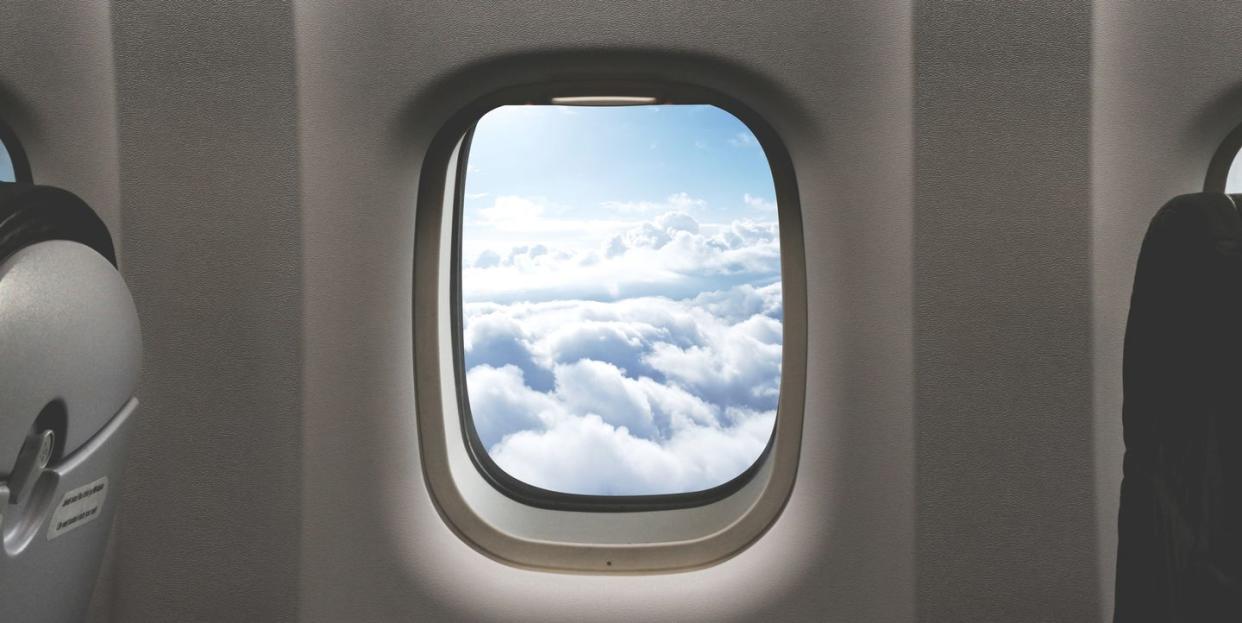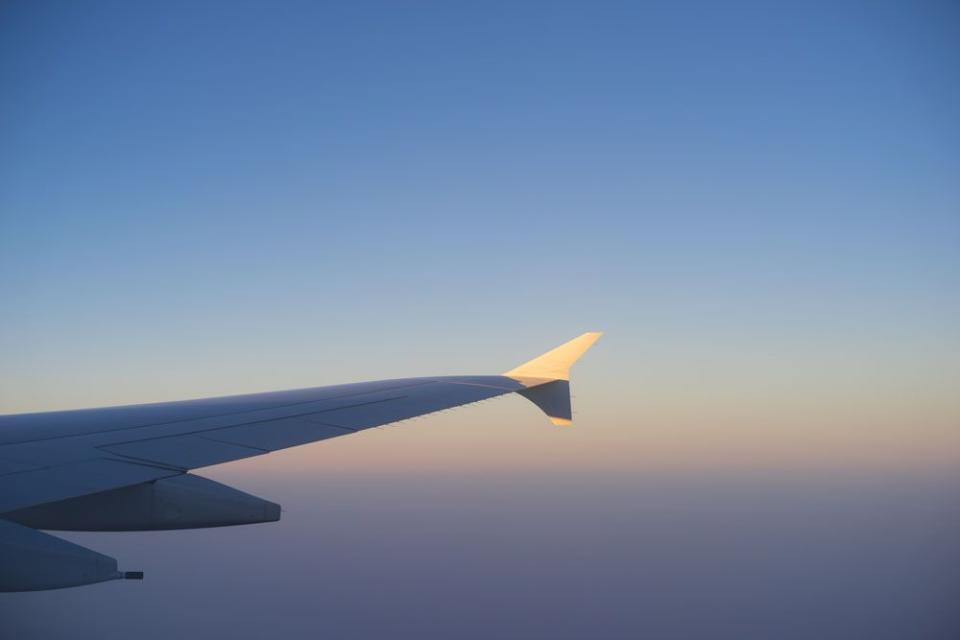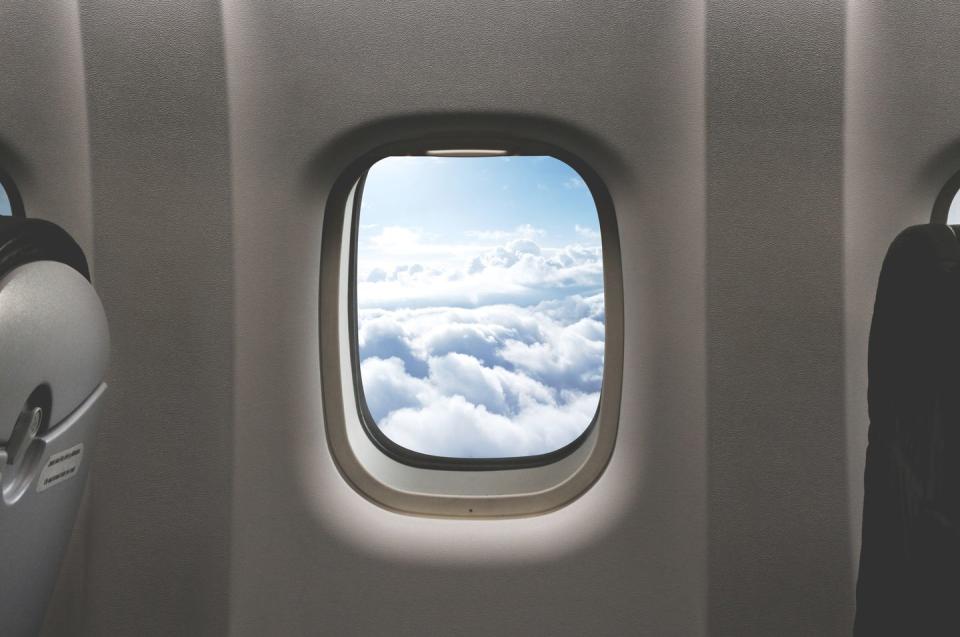The British government are advising we "stop all unnecessary travel"

Europe has been named the "epicentre" of the Coronavirus pandemic, while the UK Chief Medical Officers have raised the risk to the public from moderate to high. Understandably, this has got the public concerned about everything from if they should be wearing a face mask, to questioning if they should be going to the gym and seeking advice on whether they can travel internationally.
Here's what you need to know about going abroad amid the Coronavirus scare, according to travel and health experts.
What's the latest government advice about travelling?
As of 16 March 2020, the current government advice on the COVID-19 bug is to increase social distancing by stopping going to pubs, restaurants and clubs, and to not partake in any "unnecessary travel". In a press conference, Boris Johnson said:
"Now is the time for everyone to stop non essential contact with others and stop all unnecessary travel. We need people to start working from home where they possibly can. You should avoid pubs, clubs, theatres, and other such social venues. We should all only use the NHS when we need to, and please go online rather than ringing NHS 111."
In a later Q&A, he explained that he wasn't forcing people not to travel, but it was strong advice.
"What we're doing is giving very strong advice that public venues such as theatres should no longer be visited. The proprietors of those venues are taking the logical steps. As for enforcement, we have the powers if necessary, but I don't think it's necessary to use those powers."
“We need people to start working from home and you should avoid pubs, clubs… and other such social venues"
Boris Johnson says even those with no symptoms must stop “non-essential contact with others and stop all unnecessary travel”https://t.co/w0eDQzXUzx #CoronavirusOutbreak pic.twitter.com/7WrUd6tjJg— BBC Breaking News (@BBCBreaking) March 16, 2020
On top of this, you should avoid travel to Category 1 regions, and when returning from Category 2 regions, you should self isolate if experiencing any flu-like symptoms.
Is it safe to travel amid Coronavirus?
Many governments are advising against all but unnecessary travel, with the likes of the US and Czech Republic closing themselves off to international visitors all together. The Foreign and Commonwealth Office (FCO) has advised:
against all travel to Hubei Province, in China
against all but essential travel to the rest of mainland China. If you’re in China and able to leave, you should do so.
against all travel to the cities of Daegu, Cheongdo and Gyeongsan in South Korea.
against all but essential travel to Italy

Iran and South Korea have also been placed on red alert, while special precautions must be taken for those travelling to and returning from:
China
Hong Kong
Macau
Cambodia
Japan
Laos
Malaysia
Myanmar
Singapore
Republic of Korea
Taiwan
Thailand
Vietnam
It's worth keeping a close eye on the latest advice from the Foreign Office website, to see if anything changes, as well as knowing your rights when it comes to travel insurance.
What happens if you do want to travel amid Coronavirus?
As things stand, the government is advising against unnecessary travel. If your travel is deemed necessary, the general advice is to be as vigilant with protection from germs as possible, and to self isolate for seven days on your return, should you experience any symptoms. Keep yourself clean, wash your hands, and hold your hand over your mouth if you cough.
The US have imposed a travel ban on flights to and from Europe, and Disneyland have announced closures their resorts. Keep a close eye on the destination you're choosing to travel to.

"Coronavirus exhibits flu like symptoms and the average healthy person will recover after self-quarantine," qualified health practitioner Jason Briggs at health brand ShoeHero insists. "The elderly and those with underlying health conditions such as respiratory diseases are more at risk and should take higher precautions. Everybody should be washing their hands on a regular basis. If you sneeze, catch it and bin it and then wash your hands."
Is it safer to travel in the UK?
At this stage, it's uncertain whether booking a holiday in the UK is safer than going abroad - especially as schools are starting to close in areas where coronavirus cases have been suspected. There's no evidence to suggest visiting a destination closer to home is any safer than visiting somewhere further afield that isn't on the FCO's restricted travel list. Again, government advise is to avoid all "unnecessary" travel, which suggests travelling in the UK is also off limits.
Can you claim back cancelled holidays on insurance?
It depends. With airlines such as BA and Ryanair cancelling flights to Italy until the beginning of April, and Norwegian Air cutting 3,000 flights in the next three months, many holiday plans are being thrown into disarray. If you are no longer able to get to your chosen destination - perhaps because your flight is cancelled or its a Category 1 or Category 2 region, you should be due a refund or compensation on your travel insurance.
Not wishing to travel to other destinations due to your own concerns is not covered by most travel insurance companies, meaning you're unlikely to be able to claim back these costs due to the coronavirus.
"Unfortunately, choosing not to go on holiday due to fear of contracting Coronavirus or any other illness, is not something that your travel insurance would provide cover for," Stuart Lloyd, Travel Insurance Expert at Columbus Direct, comments. "So, if you are due to travel to a country or region that the FCO has not advised against travelling to, but cancel the trip anyway, this will definitely not be covered.
"If you’re unsure, check your travel insurer’s website to see if they have added some FAQs about the cover provided. Alternatively, contact the travel insurance provider for more information. It is worth remembering that you should also reach out to your travel agent, tour operators, airlines, holiday accommodation providers etc. in the first instance, to see what costs you can recover. Many companies, especially where the holiday is sold under an ATOL Licence, will have a duty of care to the customer to return costs or to reschedule/reroute the trip."
Like this article? Sign up to our newsletter to get more articles like this delivered straight to your inbox.
The information in this story is accurate as of the publication date. While we are attempting to keep our content as up-to-date as possible, the situation surrounding the coronavirus pandemic continues to develop rapidly, so it's possible that some information and recommendations may have changed since publishing. For any concerns and latest advice, visit the World Health Organisation. If you're in the UK, the National Health Service can also provide useful information and support, while US users can contact the Center for Disease Control and Prevention.
You Might Also Like

